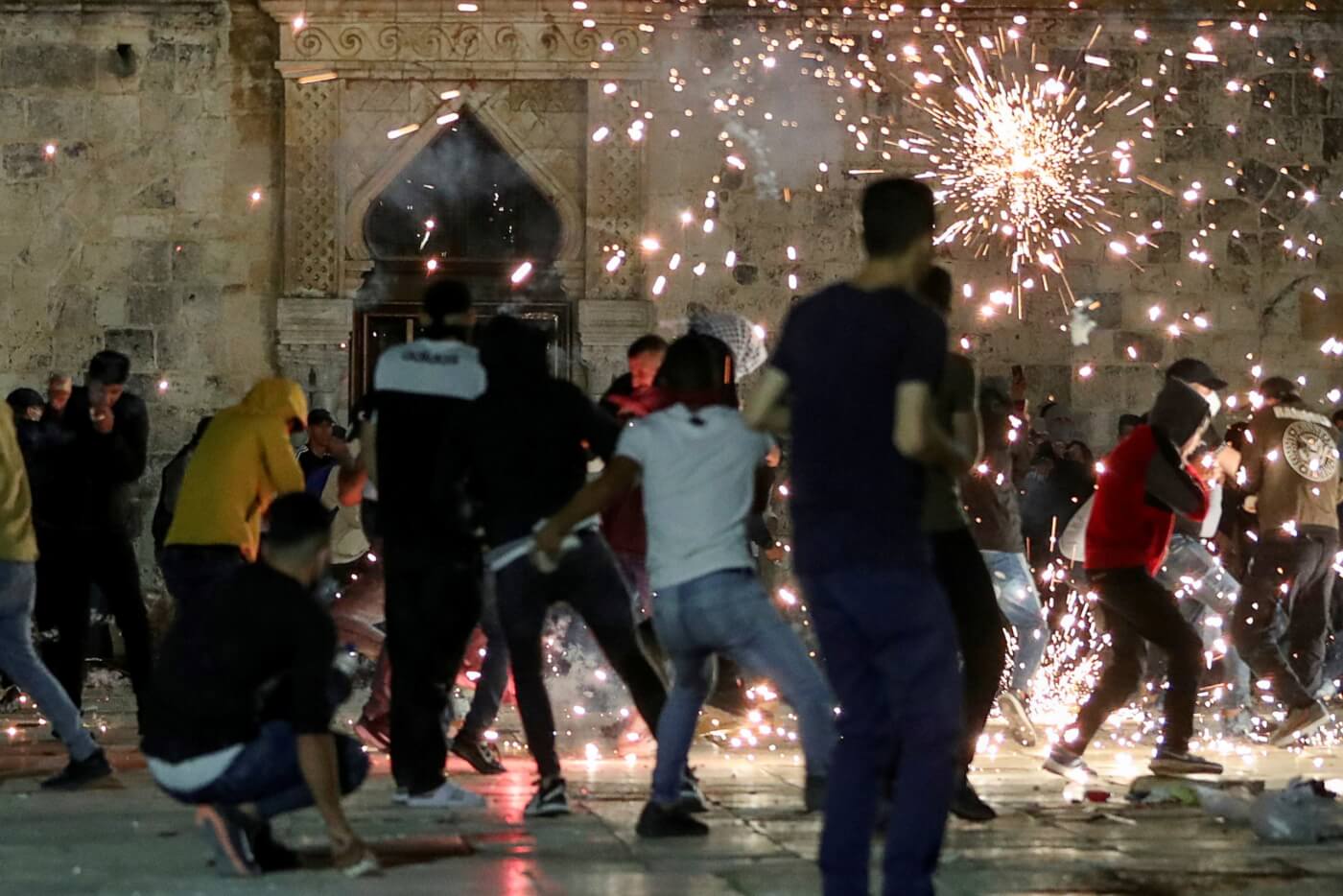Tension has been unfurling in the Palestinian neighbourhood of Sheikh Jarrah where 8 Palestinian refugee families are at danger of being evicted from their homes. Four of these families face an ‘imminent’ risk of forced eviction.
The Nahalat Shimon settler organisation is hoping to evict these families with the intention of building 200 housing units on the same land. They are relying on an Israeli law from 1970 which gives Jewish Israelis the right to reclaim East Jerusalem land previously owned by Jews before the Arab-Israeli war in 1948. However, Palestinians who lost land do not have the same rights.
The Israeli court has previously ruled that seven other Palestinian families have to evict their homes by the 1st of August, however at the request of Israeli security chiefs, the Supreme court moved its decision on the Sheikh Jarrah evictions from the 10th to the 13th of May. The change came as a result of the security concerns.
The UN has released two separate statements denouncing the forced eviction of Palestinians from their homes. The first statement on the 7th of May calls on Israel to halt evictions in the Sheikh Jarrah neighbourhood and to refrain from using force and violence in the region. Rupert Colville, OHCHR spokesperson, stated that if Israel fully implements the evictions it would violate its obligations under international law.
Colville commented:
“…the Absentee Property Law and the Legal and Administrative Matters Law are applied in an inherently discriminatory manner, based solely on the nationality or origin of the owner”
He went on to say that:
“The transfer of parts of an occupying Power’s civilian population into the territory that it occupies is prohibited under international humanitarian law and may amount to a war crime”
In its second statement on the 9th of May, António Guterres the UN Secretary-General, and senior UN officials expressed concern about the conflict in Jerusalem, particularly in the way it is impacting children. UNICEF urged Israeli Authorities to refrain from detaining and using violence against children, noting that in the past two days, 29 children have been injured and 8 have been arrested. The Israeli authorities’ plan to forcefully evict Jerusalem’s citizens as well as its use of live ammunition and stun grenades on protesters is a clear violation of human rights.
At its core, the conflict between Israel and Palestine is that both sides claim the right to East Jerusalem. Israel annexed East Jerusalem in 1980 claiming the entire city its capital, however this has not been recognised by the international community. Palestinians on the other hand are hoping for an independent state with East Jerusalem as its capital. The Jewish communities are attempting to reclaim ancestral land while Palestinians are fighting for independence and against forced displacement.
Nightly clashes between Palestinians and Israeli police had already started at the beginning of Ramadan on the 12th of April since Palestinians were protesting the security barriers placed outside Damascus gate which prevented them from gathering there during the evening. It is important to note that the month of Ramadan, particularly the last 10 days, is considered sacred in Islam, which has further increased tension. On Sunday the 9th of May, Israel responded to a rocket attack from a Hamas military group by carrying out an air strike. In Gaza, people launched incendiary balloons into southern Israel, leading to several fires.
On the 8th of May, Israeli police fired rubber bullets and stun grenades while Palestinians threw rocks, leading to 305 people being injured. The day of unrest marked Israel’s anniversary of its capture of parts of the city in 1967, during the Arab-Israeli war. The captured parts in East Jerusalem are home to the old city as well as Judaism’s holy sites. Rising tensions were exacerbated by the upcoming Jewish nationalist march on the 10th of May. The annual march, which is viewed as deliberate provocation by Palestinians, usually involves hundreds of Israeli youth taking to the streets while waving flags and singing patriotic songs.
Over the last month, Jerusalem has seen some of the worst violence in many years. Most recently on the 8th of May, Israeli police stopped several buses of Palestinians headed for the al-Aqsa Mosque to pray on Laylat al-Qadr, the holiest night of Ramadan. Al-Aqsa Mosque, known as Haram Al-Sharif, or Temple Mount, is considered the third holiest site in Islam and in Judaism is the location of two Biblical Temples as well as its holiest site. While most Palestinians complied with the police, walking the rest of the way, and chanting “In spirit, in blood, we will take back Al-Aqsa!”, violence broke out outside the mosque.

